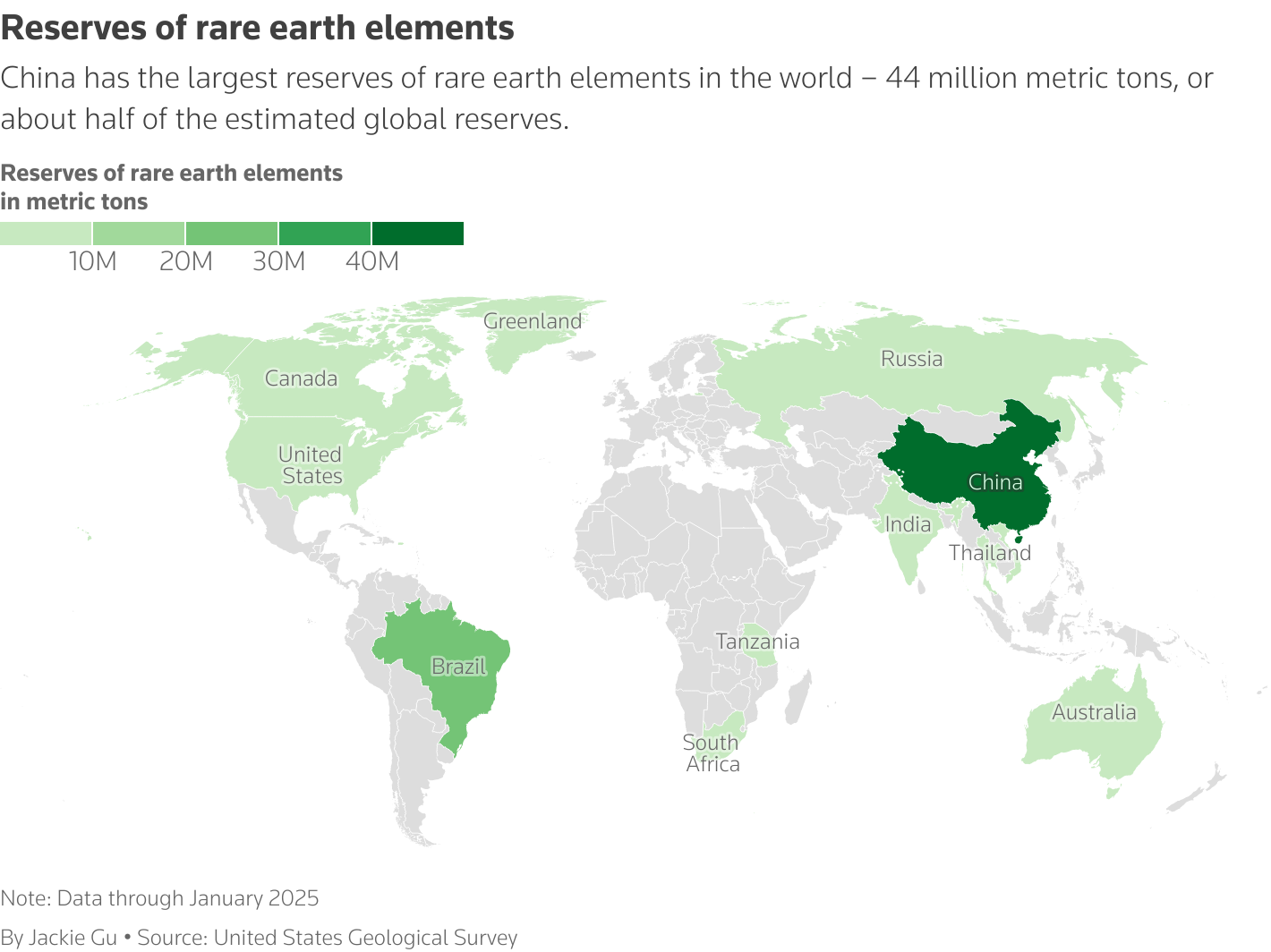It’s about living in reality:
The main difference between American and Chinese society today is less that one has more dumb people and one has more smart people and more that within public life, being stupid is relentlessly shamed as stupid in one and being smart is relentlessly shamed as stupid in the other.
These days, American society assigns intelligence credentials based not on who can demonstrate a meticulous, well-developed understanding of how anything works, but on who can give the smartest sounding, post-hoc rationalization for the half-baked ideas people desperately want to be true.
If you do the former, and it yields answers people don’t like, they’ll reach deep into their bag of fantasyland narratives to try to invalidate your credibility. If you provide the latter, you’re celebrated — not only as a genius, but a champion. When things don’t work as promised?
They’ll have already sunk so much personal credibility and self esteem into the fantasy they’d rather burrow deeper into delusion than backtrack. In other words, “smart” is whatever helps nurse fragile self esteems rather than whatever helps them understand and work with reality.
In Chinese society today, intelligence is still very much a consequential trait that demands its keep via real, effective results. In the US, it’s turned into another fake self esteem signifier in a culture that’s long stopped caring about anything but fake self esteem signifiers.
I observed this a long time ago, personally. I had predicted the financial crisis, right down to the month. I had been right about Iraq and a variety of other important issues. I was discussing the “Arab Spring,” and said, “It isn’t over till the army votes.”
There was argument back and forth, and I said, in effect, “Look, I have a track record, and so do you. I’m usually right, and you’re usually wrong.”
The response was furious, and I was booted off that particular forum.
In my last major blog role as managing editor, I was able to increase traffic by 60 percent in less than a year, and I felt onto most of it after the election of Barack Obama. Other Netroots sites were bleeding readers, but not us. I could say exactly what had been done to increase traffic. But the publisher was sure they knew better, so I left. That site no longer exists.
People who were for the Iraq war, who made claims that it would work and be easy are now major pundits. Both Matt Yglesias and Ezra Klein were for the war. Indeed, Yglesias wanted to take out all of Iraq, Iran, and North Korea. A study in the L.A. Times found that media figures against the war were fired, laid off, or had their careers stagnate. Those who were for it had their careers prosper.
A correspondent once did a serious search on who had been right, in public and in advance, about the financial crisis. The number was in the 40s. That means that almost no economists, the people who, you know, study this stuff and claim to know something, predicted an obvious bubble. You only had to look at a couple charts. It wasn’t rocket science.
For most of my life, development economists claimed that free trade without protection for local industry was how countries should industrialize and that they should move to cash crops and sell commodities. Every country that tried this failed. The ones who succeeded at industrializing did so behind some form of protection for new industry: China, Japan, South Korea, Taiwan, and so on. They certainly didn’t double down on commodities. The only thing that has ever worked is exactly what development economists advised against.
Fools like Francis Fukuyama became famous and wealthy by saying nonsense things like how “democracy and capitalism are two sides of the same coin” and “the end of history has arrived.” Those of us who warned that it mattered where industry was, and that sending your industry to other countries was the equivalent of shipping away your power and prosperity, were sneered at.
Climate change has, for decades, come in “over,” which is to say worse, than the consensus predictions. Almost every single bad event has happened sooner than the IPCC said it would. You’d think, after a while, they’d ask themselves, “Why are we getting this wrong all the time?” and self-correct. If you can’t figure out why, just look at the windage, make your predictions, then add the average error rate. “Events usually happen X percent sooner than our models predict, so here’s the dates taking that into account.”
It’s not rocket science.
Most Western pundits thought that Ukraine would “win” a war against Russia. No. Pundits told us over and over again that NATO expansion wouldn’t cause a war. Wrong. Pundits told us that Russia was weak compared to NATO and that GDP accurately measured their strength. Pundits thought that sanctions would collapse the Russian economy, not taking into account that China had a veto over that, and a reason to use it.
In every single case, the discourse had, and has been, seized by what people want to believe, or what oligarchs want people to believe. They want people to believe what pays, not what is true. There are no consequences for being wrong and no self-awareness. I am bad at electoral predictions. So when I make one, I always note that I suck and am probably a negative indicator. (I thought Harris would win, for example, though I did get the Canadian election right.)
Now, it isn’t entirely true that there’s no accountability in the West. There is. There is only one rule that the West insists always be followed:
The rich must keep becoming richer, no matter the cost to anyone or anything else.
Because that is the only form of Western accountability, the West will keep losing, because richer rich and higher inequality do not cause or even correlate with any of the main constituents of power, prosperity, or technological progress
Our entire discourse system, our entire media, and our entire elite class have zero accountability outside of ensuring the rich get richer.
At this they have succeeded and at nothing else.
This blog has always been free to read, but it isn’t free to produce. If you’d like to support my writing, I’d appreciate it. You can donate or subscribe by clicking on this link.
 What a lot of people don’t know is that the aid ship Greta was on wasn’t the first ship sent. The last one didn’t get to Israel either, but because there were no major celebrities on it, most people who aren’t 24/7 news or Gaza obsessives don’t know it even existed.
What a lot of people don’t know is that the aid ship Greta was on wasn’t the first ship sent. The last one didn’t get to Israel either, but because there were no major celebrities on it, most people who aren’t 24/7 news or Gaza obsessives don’t know it even existed.


 One of the simplest lenses to look at an industrial society is whether it’s run by financiers or capitalists.
One of the simplest lenses to look at an industrial society is whether it’s run by financiers or capitalists.